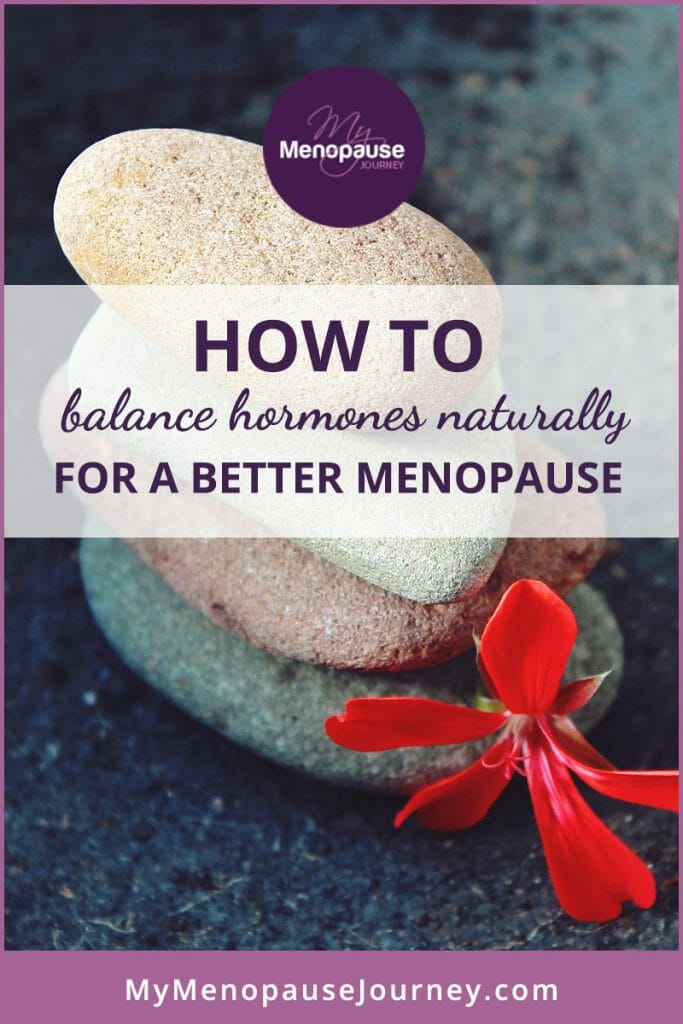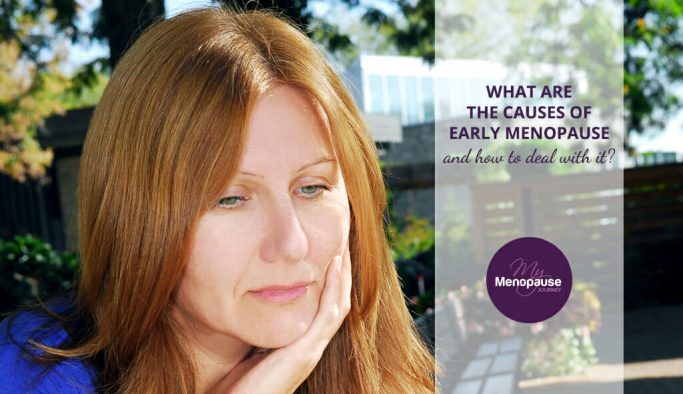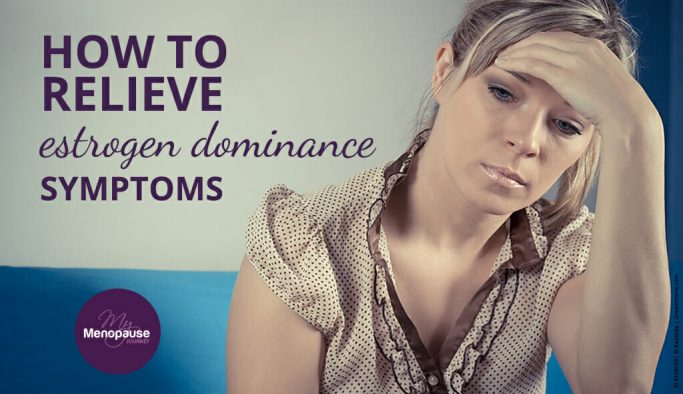
Have you heard that balanced hormones mean a balanced life? There might be some truth to this!
A hormone’s job in the body is enormous! They tell our organs when it’s time to go to work. They have the power to make our hearts beat faster and send signals to the brain that we’re hungry. Hormones also prepare the gut for incoming food and tell the body when it’s time to sleep.
Hormones are a family of molecules that act as messengers. After they are made in a specific gland, they will travel to other parts of the body to control and instruct how cells and organs do their work.
What’s more impressive? One hormone can play many hats and may influence other hormones to improve our overall body functions. For example, estrogen is a sex hormone, but it also contributes to the brain, heart, gut functioning, etc.
Since we’ve come to this topic, here are three hormones that may affect our menopause journey, plus learn how you can balance hormones naturally in 5 simple ways!
Three Important Hormones in Menopause
The hormonal system is a complex and fragile system in the body. The same hormones that keep you happy and healthy may also cause distress. Hormonal imbalance happens throughout your life, but what you experience during menopause is different.
The “dance of hormones” during menopause means your hormone levels may go and up-down. These unpredictable shifts cause hormonal imbalances, which may result in a myriad of menopause symptoms. The three dominating hormones in your body include:
Estrogen
Estrogen is a versatile hormone that serves so many functions in your body. It keeps your reproductive system functioning at optimal levels, maintains eye, skin, hair and nail health and regulates major organs like the kidneys and liver.
Progesterone
For many years, the medical world’s eyes were all on estrogen, but now, many experts recognize the positive impact of progesterone on the body. Progesterone’s functions include:
- facilitating the release of egg cells for ovulation and fertilization
- maintaining pregnancy
- initiating monthly periods
- preventing milk from leaking while pregnant
- regulating libido
- making sure that you don’t lose bones mass.
Women produce lesser amounts of testosterone than men, and while your body needs more estrogen than this male hormone, it is still pretty useful in your body. Testosterone is needed for stronger bones, better sex drive and toner muscles. This male hormone also keeps your mood at bay, maintains brain functions, and regulates fats’ absorption in the body.
How Menopause Disturbs Our Hormone Balance
Wondering how hormones send their messages to different parts of the body? Here’s a rundown of the process!
The whole process begins when hormone production takes place in your glands. Your hormones travel via your blood to the different cells and organs in your body. When they reach their destination, they knock on your cells’ “gatekeepers”, called receptors, where they will relay their message.
If your receptors feel like your cells need them, they allow entry to dock into your cells, and they will turn on a specific function. This is how your hormones keep the body balanced. But…
During menopause, your hormone production changes big time. In the early stages, your ovaries start to falter, but they will still produce normal amounts of estrogen. On the other hand, progesterone production reduces. This causes an imbalance called estrogen dominance (ED) where estrogen is higher relative to progesterone. In the later parts of menopause, you experience declining hormone levels, which can make you deficient.
As the receiving end, your receptors will accept what’s coming to them. Excessive estrogen in your body will hyperactivate your organs and the lack of progesterone may affect some body functions. Hormone deficiencies on the other hand slow down the majority of your body functions and you may experience symptoms such as:
- Changes in your monthly periods
- Mood swings, depression and anxiety
- Dry skin, hair and nails
- Breast tenderness
- Weight gain
- Sleeping difficulties
- Hot flashes
- Night sweats
- Fatigue
- Bloating
- Low sex drive
- Brain fog
- Heart palpitations
- Slow digestion
- Sluggish metabolism
To know what phase of menopause these symptoms particularly fall, we have an article on the stages of menopause which you can read.
Going back, menopause is a normal process, but sometimes your hormone balance during menopause may also be a result of “outside forces”.
The world we live in now is filled with toxins, chemicals and fake hormones! Your receptors have two strict rules on who docks in your cells. One, they must have the same chemical recipe as your hormones and two, they must resemble the same shape.
However, these fake hormones are impostors, and they’ve evolved themselves to become just like your endogenous hormones. Your receptors cannot differentiate them, so your body gives them a pass. Once they’re inside, they wreak havoc on your hormone balance.
Let’s take fungi, personal care products with parabens, plastics and triclosan in them – all these have xenoestrogens. In women, they will overstimulate our estrogen-sensitive cells’ growth, which may cause fibrosis and even cancers. In men, they can make features more feminine. Sometimes, these fake hormones may not be able to enter our cells, but they’ll block our endogenous hormones from entering, wreaking havoc on hormone balance.
In the medical world, these fake hormones are called endocrine disruptors, and many scientists found products we use today to have them. Women in Balance has a great list that you can scan on.
5 Ways to Balance Hormones Naturally!
As they say, the best things in life always take time. This is pretty true when you balance hormones naturally. Natural methods provide better and long-term health effects. The key is to start doing these 5 natural remedies now!
1. Eat Healthy
Most people have made fast foods their life-savers! If they need to grab a quick bite, these foods are the most convenient to get. But every time we eat processed foods, we take in fake hormones called xenoestrogens in our bodies. They can be on the patty of our favorite burger or the cheese that we love to snack on so much. Ditch the processed foods and have these healthy alternatives instead!
- Superfoods. They’re called “super” because they have super health benefits! Superfoods correct hormonal imbalance and relieves menopause symptoms. Some examples include berries, chia seeds and coconut.
- Phytoestrogenic herbs.These herbs contain plant-based estrogen. Examples of these herbs include dried fruits like dates, apricots and prunes, flax seeds, sesame seeds and chickpeas. Fermented foods may also be a good source of phytoestrogens.
- Adaptogenic herbs. Unlike phytoestrogenic herbs, these herbs lack estrogen content. But they may stimulate estrogenic activity and have balancing, relaxing and calming effects. Ashwagandha, Rhodiola, Maca Root and Chasteberry are just a few examples.
- Hormone Boosters. To increase progesterone, eat foods high in vitamin C, E and B. Zinc and magnesium rich foods are also helpful. Read more about this in our progesterone article. We can raise the levels of testosterone by eating berries, oysters, tuna, coconut, shrimp and wheat bran. Sources of Vitamin D also help increase testosterone.
- Eat Healthy Fats! Good fats like saturated fats are essential in the production of hormones. They contain Omega-3 and 6 which are main components of hormone synthesis. Keep your hormone levels in check by consuming coconut oil, avocado, grass-fed butter and oily fish like salmon and sardines.
- Follow Healthy Eating Practices. Juicing, intermittent fasting and drinking detox water can all help flush out harmful toxins in the body that mess up hormone balance.
I love eating healthy! Good food gives me energy, and I like how people say I don’t look my age. 🙂 I have menopause symptoms, but overall, I enjoy midlife. I credit these positive experiences to my Keto-Green diet!
2. Exercise Regularly
Exercise can calm and relax both mind and body. It activates and improves our body’s response to stress, improving blood circulation. It also increases metabolism, gives us energy and stimulates the brain to release happy hormones.
Our body likes to adjust to a gradual pace so we don’t have to do intense exercises. Simple exercises like stretching, walking, using foam rollers, yoga and meditation will make a world of difference and balance hormones naturally.
3. Stress Less
Chronic stress may suppress hormone production. When we experience stress, our body releases the hormone called cortisol. The Indian Journal of Endocrinology and Metabolism explains that cortisol can alter the levels of many different hormones in the body and can cause an imbalance. It’s high time you slow down, learn to relax and breathe. Unwind and give yourself some “me” time!
4. Get a Good Night’s Sleep
Do yourself a favor and sleep 7 to 8 hours per day! If you’re wondering why it’s because our hormones work on a schedule. Hormone production follows our body’s biological clock. When our sleeping pattern is not definite, it will also mess up our hormones. If you want to balance hormones naturally, make sure to get quality and uninterrupted sleep every night.
5. Consider Natural Supplements
Along with dietary intake, you may also want to consider supplementing. Always pick natural and organic products! Some of the supplements that you can take include amino acids, probiotics, Shatavari, zinc and magnesium. Vitamins and minerals are also great in protecting you against illnesses that may cause hormonal imbalance. For a complete list of supplements, check out our site!
Remember to visit your doctor and know your hormone levels before taking anything! This is better explained in the next section! This interesting video by Dr. Axe explains the 7 keys to balance hormones and manage menopause. It’s a little long, but definitely worth watching! [37:35]
Testing for Hormone Balance
There’s a saying, “if it isn’t broke, don’t fix it”!
A lot of the symptoms of hormonal imbalance are similar to other disorders. To know for sure, we can visit our doctor for more advice and proper hormone testing. But we may also do it on our own (still with the guidance of a doctor who’ll interpret the results), with the help of menopause tests. This will help us know if we are deficient or in excess of some hormones. It’s also best to check for your vitamin and mineral levels because deficiencies may also cause symptoms.
Hormone tests are able to measure a wide range of hormones like estrogen, progesterone, testosterone, DHEA, luteinizing hormone, follicle-stimulating hormone and even cortisol and insulin. Taking a thyroid test may also help because thyroid problems can mimic the symptoms of menopause.
There are also assessment quizzes that allow us to take note of our signs and symptoms. You can find out more about them in our article (follow the menopause test link above)!
Blowing another birthday candle every year isn’t so bad. Aging is a wonderful experience that we can enjoy, even with menopause around! However, even in our 40s and 50s, we still live hectic lives, and this is when our hormones need extra care the most.
All the stress and toxins of modern living may ruin our midlife experience. The good news is, there are ways to make things better! To start, we can re-evaluate our lives, listen to our bodies more, find the roots of our problems, and make the necessary lifestyle and diet adjustments. Maintain hormone balance, stay energetic and feel good during the menopause transition!
References:
draxe.com/10-ways-balance-hormones-naturally/
hormonesbalance.com/
drhyman.com/blog/2015/08/14/how-do-i-naturally-balance-female-sex-hormones/
drwillcole.com/7-hormone-imbalances-that-could-explain-your-fatigue-moodiness-weight-gain/
blog.paleohacks.com/hormonal-imbalance/http://www.saragottfriedmd.com/balance-your-hormones-balance-the-scale-5-ways-to-lose-weight-through-natural-hormone-balancing/
mindbodygreen.com/0-29498/a-hormonebalancing-action-plan-for-better-sleep.html
nutritiouslife.com/live-consciously/balanced-hormones-health-benefits/
stepuptotheplatenutrition.com/article/nutrition-hormone-balance
Straight Talk About Soy | The Nutrition Source | Harvard T.H. Chan School of Public Health
👉 What to Do Next
Don’t go just yet — especially if you’ve been feeling off and no one’s given you real answers.
Go to the START HERE page.
It’s where things begin to feel clearer. No more second-guessing, no more sorting through conflicting advice. Just calm, honest support for where you are right now.
And if you haven’t yet, download the FREE GUIDE.
It’s quick, clear, and made to help you feel better — without having to turn your whole life upside down.


Gita is the founder of My Menopause Journey. Since 2014, she has been supporting midlife women by sharing hard-earned learnings from her own experience. To advance her knowledge, Gita puts a lot of her time and effort into understanding the broad spectrum of women’s health. She immerses in extensive research about the physical, mental and emotional aspects of menopause. Gita believes in the life-changing power of healthy, holistic living — this is where she anchors her message to all women. Learn more about her marvelous mission in About us - My Menopause Journey.







I don’t understand why you refer to soy as xenoestrogenic rather than phytoestrogenic.
Hi there, Vivian!
You are right — soy contains isoflavones, which are technically phytoestrogens. However, there has been a conflicting debate regarding soy’s estrogen-like effects. In 2013, the USDA found that 93% of soy was genetically engineered, allowing farmers to use large doses of herbicides.
Moreover, experts have seen another factor influencing soy’s effects — the existing hormone levels in the body. To put it into context, women in perimenopause have higher levels of estradiol (the primary form of estrogen in the body) than postmenopausal women. So, the soy could act as an anti-estrogen, at least for perimenopause women. It also depends on what type of soy is used.
Please allow us to make some revisions on that point. Thank you and we appreciate you reaching out! ❤ /Gita
Cool! Thank you for sharing this. I will share it with my friends too.